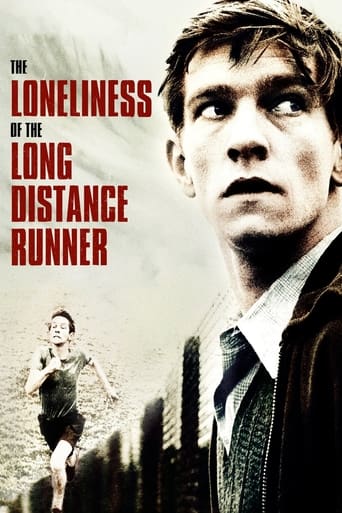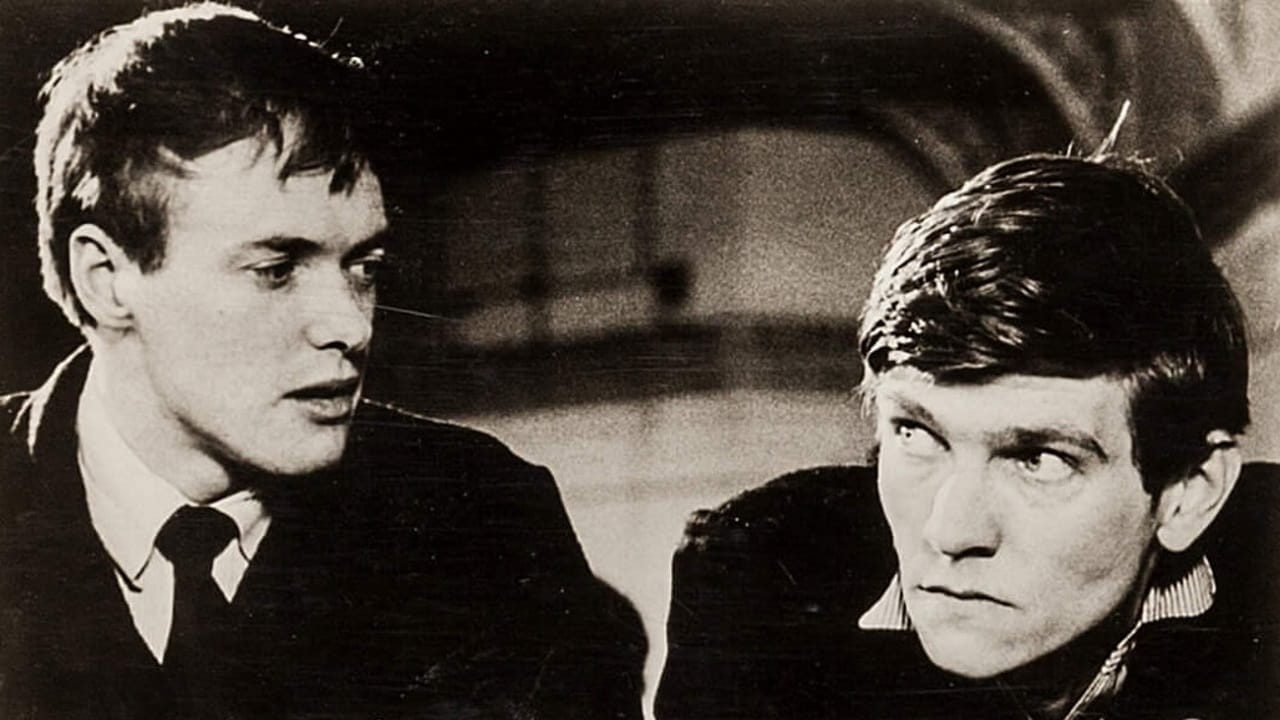James Hitchcock
Alan Sillitoe seems to have gone down in literary history as a two-hit wonder, the two hits being his first two works, the novel "Saturday Night and Sunday Morning" and the short-story collection, "The Loneliness of the Long Distance Runner". Few, if any, of his later works achieved the same success. In the late fifties and early sixties, however, he was a leading light in what became known as the "kitchen sink" social-realist movement in English literature, and both books became key texts of that movement. The British cinema was going through a similar social-realist phase at around the same time, so (like several other key kitchen-sink texts, such as Shelagh Delaney's "A Taste of Honey" and Stan Barstow's "A Kind of Loving") both "Saturday Night..." and "The Loneliness..." were inevitably adapted for the screen. "The Loneliness..." tells the story of Colin Smith, a youth from a working-class Nottingham family, who is sentenced to a term in borstal for burgling a bakery. (A "borstal" at this period was a special prison for young offenders). In the original short story he was simply called "Smith", but Sillitoe, who also wrote the screenplay, evidently felt that he needed a Christian name for the screen. The film is essentially a study of class conflicts in the Britain of the late 1950s and early 1960s. The two main characters are Colin and the Governor of the borstal. The Governor is, on the surface at least, a humane and decent man. He claims that his job is to reform and rehabilitate the young men in his charge rather than to punish them. The Governor's ambition is to run his borstal along the lines of a public school. (His accent suggests that he is probably a public schoolboy himself). He is keen to encourage his boys to take up sport as part of his rehabilitation programme, and Colin becomes a protégé of his when he discovers that the young man is a talented athlete. Colin is entered into a cross-country race in an athletics meeting against the boys of a nearby public school. The account of Colin's time in the borstal is intercut with a series of flashbacks showing his previous life in Nottingham. An event which had a great effect on him was the death of his father, not because he had any great affection for the old man but because he saw him as a symbol of the downtrodden, put-upon working-class little man. From what we learn, Smith senior appears to have worked all his life in a badly-paid dead-end factory job, with little to show for his hard work. He was badly treated by his bosses and cuckolded by his sluttish, sharp-tongued wife who moved one of her lovers into the family home almost as soon as he was dead. (Colin may have had no great affection for his father, but he positively detests his mother). Colin's resentment of "the System" may derive from a determination not to allow himself to be trapped in the same way as his father was. I have always been in two minds about Colin's famous final act of rebellion, but then I think that Sillitoe deliberately intended it to be ambiguous. On the one hand, some have seen it as a magnificent revolt against the System and against the Governor and his old-school-tie Establishment values. Others, however, have seen it as a pointless gesture by a young man who actively wants to be a loser because he is too cowardly, or too apathetic, to be anything else. I think that Sillitoe also wanted us to be in two minds about Colin himself. For all his talk of working-class solidarity, he is actually very self-centred. He can talk the language of "them and us" when what he really means is "them and me". When he robs the bakery he gives no thought to the workers whose wages he is stealing; his only thought is to spend the proceeds on a trip to Skegness with his partner-in-crime and their girlfriends. The alacrity with which the police make him their Number One suspect, even when they have no hard evidence against him, suggests that this is far from being his first brush with the law. Sillitoe himself had left-wing sympathies, as did the director Tony Richardson, but he may have intended Colin as a portrayal of the "phoney radical" who uses the language of political protest in order to justify his own selfishness and criminality. I think that we are also supposed to see the Governor as an ambiguous figure. On the surface he may seem decent, but it is implied that beneath this surface veneer he is less humane than he seems and that he turns a blind eye to brutality carried out by his officers against the inmates. He talks about his concern for his charges, but we suspect that he may only care about a favoured few, especially those who share his interest in sport. If Colin is a phoney radical, the Governor is a phoney liberal. There are two fine performances, one from that pillar of the British theatrical Establishment Sir Michael Redgrave as the Governor, a pillar of the British penal Establishment, and the other from Tom Courtenay, one of the emerging Angry Young Actors of the early sixties, as the angry young Colin. The contrast between their two very different styles of acting- Redgrave superficially gentlemanly and urbane, Courtenay feral and aggressive- symbolises the clash of social classes and of values which lies at the heart of this fine film. 8/10
daoldiges
I'm a long distance runner, I love film, and appreciate British cinema, so I thought I check this out. It was not at all what I was expecting! It is a no-nonsense story about the class system and society of Britain in the late 50's and early 60's as told through the experiences of one young man who due to his success in distance running gets a chance to break away from the label society has put on him elevate himself to an other place and yet refuses. Tom Courtney is really good here. The B&W cinematography is wonderful, as is the sound/score. On one hand it's very much representative of Britain at this time and yet I feel the story is still very relevant to this day in Britain and here in America. Overall this is an interesting and thoughtful film.
Leofwine_draca
THE LONELINESS OF THE LONG DISTANCE RUNNER is director Tony Richardson's follow-up to A TASTE OF HONEY and another kitchen sink drama. However, this one's much better than his previous constrained effort, as this explores working class life and struggles on a much grander tableau. The main character is a teenage running champion whose life in a borstal is explored in the grittiest of detail while his back story is explored via flashbacks.The story is well cast and accentuated by the ring of authenticity. Tom Courtenay is exceptional as the protagonist, never smiling, never happy, but at the same time proving ultimately sympathetic given his background and story. A strong supporting cast including Michael Redgrave, James Bolam, and even John Thaw help to propel things along. The situations remain interesting and are surprisingly undated given the film's age, and there's always some drama to keep your mind occupied. I particularly enjoyed the ending, which would seem insignificant to an outsider with no knowledge of the film's plot, but which becomes almost an epic struggle to those who have sat through the preceding narrative.
Sindre Kaspersen
After committing a crime with a friend, the young rebel Colin Smith is sent of to a reform school called Ruxton Towers where he is introduced to a world that is totally different from his own. Colin immediately objects to the reform school's methods and considers his punishment as pointless, but when he meets the school governor, a man who believes that sports can transform young men into responsible citizens, Colin gets the opportunity to use his running skills.The fifth feature film by British New Wave director Tony Richardson (1928-1991) is a socially critical story based on a short story from 1959 by English writer Alan Sillitoe (1928-2010), which realistically depicts the working-class milieu in Nottingham during the early 1960s. This character-driven social drama opens with the main character running along a road while his inner monologue describes his intelligible view of life, and from there on out portrays an in-depth study of character about a man's unyielding integrity. Through flashback scenes the viewers get a close insight into the protagonist's life before the reform school and acutely narrates how he is challenged by his resistance against authorities and his troubled family life while trying to find his own identity.This empathic coming-of-age tale has a well-written screenplay by Alan Sillitoe which examines themes like identity, family relations, friendship, alienation and strength of character. The captivating music and the stellar black-and-white cinematography emphasizes the quiet atmosphere in this British independent film, a timeless character drama, which is crafted by Tom Courtenay's magnificent performance.



 AD
AD





